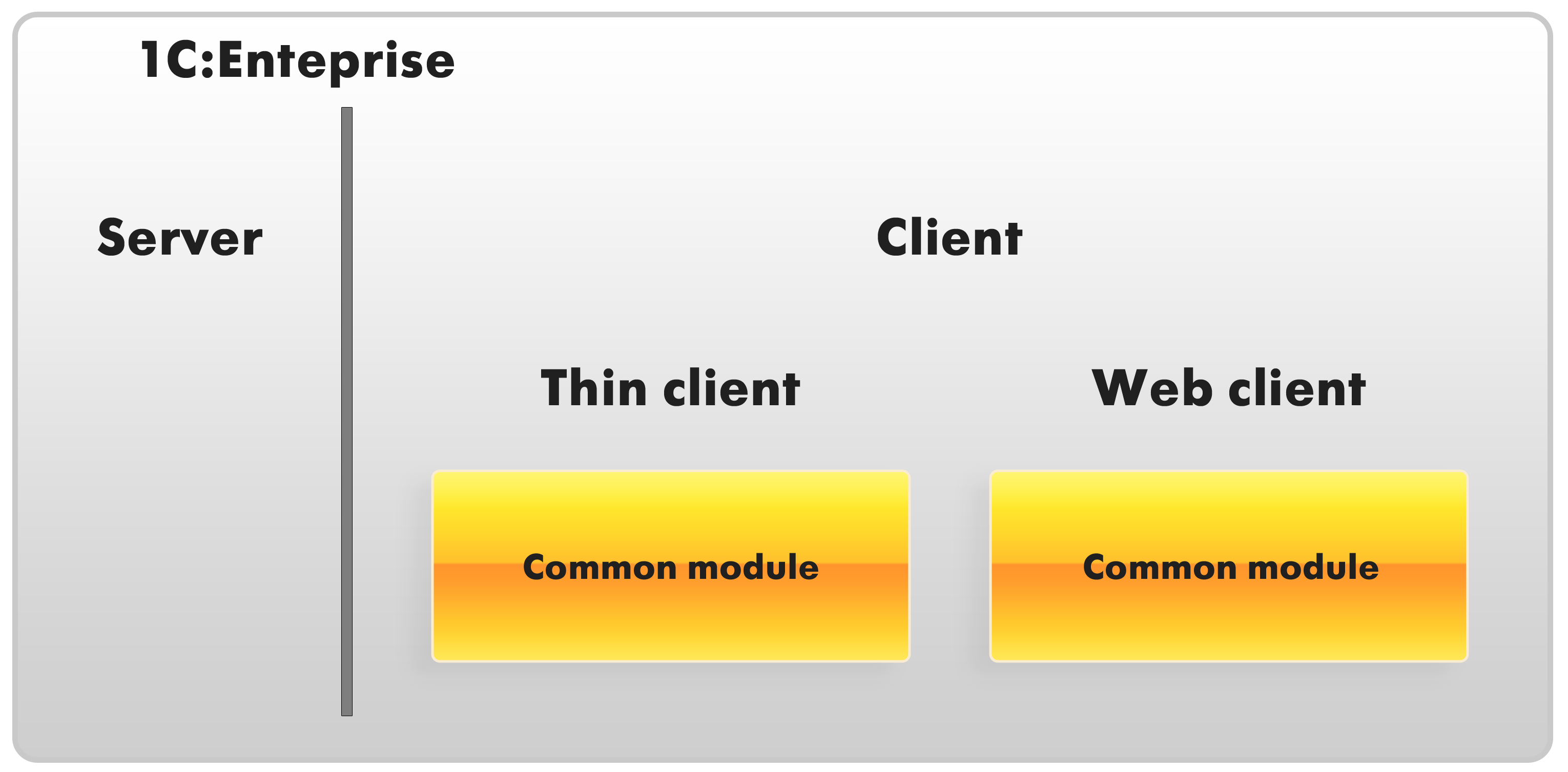Common module compilation
In the previous lesson you created a single procedure for handling multiple events and stored it to the common DocumentProcessing module. This module, just like any other common module, has the following properties: Client (managed application), Server, and External connection. The values of these properties (True or False) define where the instances of these modules are compiled.
Let us discuss what changes when you set or clear these common module properties.
First you need to learn why compilation is needed. Everything that you have developed and coded in the configuration by now is nothing more than a "workpiece". When you start the platform in 1C:Enterprise mode, all this is transformed into a program capable of being executed on a computer. This process is referred to as compilation. Note that as we have mentioned above, script can be executed in different parts of the system: on the server and in client applications. So, for common modules you have to explicitly specify the side where they are compiled: on the server or on the client.
In the common DocumentProcessing module you set the Client (managed application) property to True by selecting its check box (see fig. 4.24). It means that instances of this module are only compiled on the client side in the thin client context and in the web client context (fig. 5.48). 
Fig. 5.48. Common module compilation on the server and on the client
If a module only has the Server property set to True, the module is only compiled at the server side.
The platform has two client applications available: the thin client and the web client.
The thin client is the 1cv8c.exe file. This file is executed when you start debugging.
The web client does not have an executable file because it is not executed in the operating system environment, the web browser environment is used instead. A user should only start their web browser and enter the address of the web server where the infobase is published, and the web client is downloaded to the computer and started.
